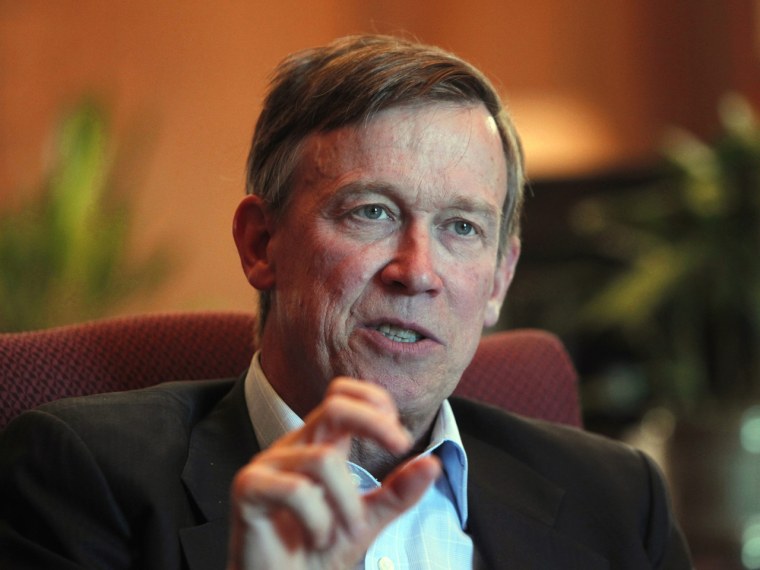Given the enormous size of the Democratic presidential field, every candidate faces a straightforward practical question: how to stand out in a crowd. Former Colorado Gov. John Hickenlooper (D) joined 18 other contenders in Iowa over the weekend, and differentiated himself by running to his rivals' right.
As he did last weekend in San Francisco, Hickenlooper urged Democrats to repudiate socialism. "Trump is the worst president our country has ever had, but defeating him is far from guaranteed," he said. "I'm the only person running who has actually done what everyone else is talking about, so I can tell you that you don't do big things with big government."
Before considering the substance of comments like these, it's worth appreciating the curious political strategy the former governor is implementing.
I tend to think the importance of "lanes" is overstated, but the general idea is that presidential candidates can be grouped together in ways that appeal to specific constituencies: some voters might be looking for a fresh face, others might want someone more experienced, others still might prefer a D.C. outsider, and so on.
Hickenlooper may very well look at his intra-party rivals and notice that he can run to the middle and have the "centrist" lane largely to himself, locking up the Democratic voters who are looking for a presidential candidate hostile to "big government."
As a tactical matter, this would probably be more effective if there were lots of voters in this camp. In reality, however, there's little to suggest this contingent exists. The Coloradan has a lane to himself, but that's largely because no one else wants to be there.
But as important as this is to Hickenlooper's future, it's also important to appreciate the simple fact that he's mistaken about his governing philosophy.
Eight years ago, a friend of mine by the name of Rachel Maddow did a network promo in front of the Hoover Dam, and her message at the time seems relevant anew:
"When you are this close to Hoover Dam, it makes you realize how small a human is in relation to this as a human project. You can't be the guy who builds this. You can't be the town who builds this. You can't even be the state who builds this. You have to be the country that builds something like this."This is a national project. This is a project of national significance. We've got those projects on the menu right now. And we've got to figure out whether or not we are still a country that can think this big."
Eight years later, Hickenlooper apparently has a discouraging answer to that challenge: "[Y]ou don't do big things with big government."
The trouble, of course, is that there's ample evidence to the contrary. Big government put Americans on the moon. It won World War II. It executed the Marshall Plan. It created the Interstate Highway System. And Social Security. And the internet.
It built the Hoover Dam. And the Golden Gate Bridge. And the U.S. Postal System.
There may be an audience for a "think smaller" approach to 21st-century governance, but I'm reasonably sure it's in Republican politics, not Democratic.
